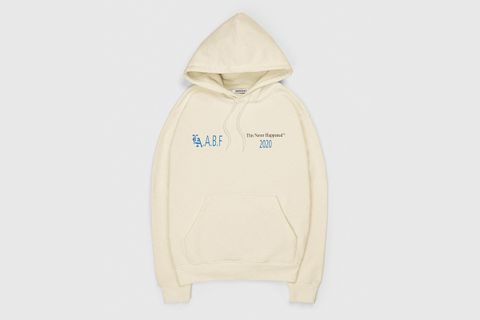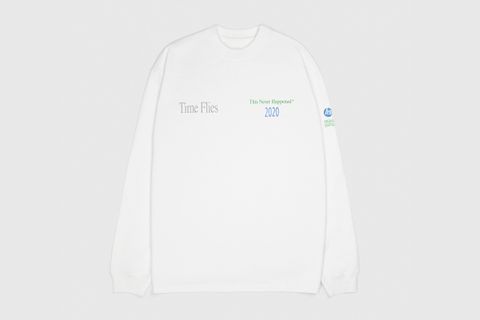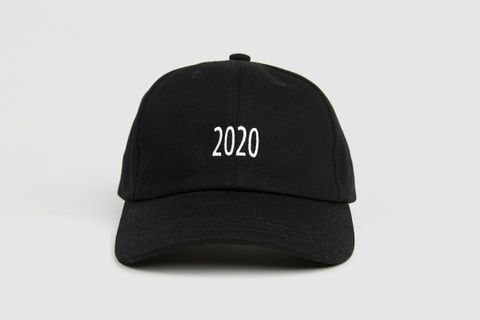2020 Was the Year Women Banded Together to Take Over Rap
Late into the evening of November 7, 2020, after four long, sleepless nights of ballot-counting and browser-refreshing, a huge crowd gathered outside the White House. Brandishing their "You’re Fired" placards, the overjoyed revelers came together to celebrate the tense, long-awaited announcement of Joe Biden’s presidential victory. In a year ravaged by lockdowns, police brutality, and an ongoing pandemic, these scenes were a moment of brief yet beautiful respite from political chaos. Fittingly, they were soundtracked by mass chants of the year’s most important track: "WAP," the record-breaking collaboration between Cardi B and Megan Thee Stallion.
From Queen Latifah recruiting Monie Love for "Ladies Night" in 1989 to the star-studded 1997 remix of Lil’ Kim’s pussy-eating anthem "Not Tonight," some of the best tracks in rap history have been the result of women joining forces. But not only did "WAP" smash streaming records, it proved once and for all that top-tier women can pool their creativity without being plagued by feud allegations. This ethos has dominated 2020 at all levels of the female rap game, consolidating slow-burning shifts in the industry for good.
Historically, women have been expected to land a male co-sign to rise through the ranks. Early pioneers like Roxanne Shanté, MC Lyte, and Queen Latifah experienced success in the late ’80s and ’90s, but in the mid ’90s and early ’00s in particular, it seemed women in rap were doomed to relative obscurity unless they could land a public endorsement from a male veteran, or break through as the "First Lady" of a high-profile collective.
Eve was known as the first lady of Ruff Ryders before she landed a global smash with "Let Me Blow Ya Mind," and before they became icons in their own right, Kim and Foxy were advertised as the newest, freshest members of Junior M.A.F.I.A. and The Firm, respectively. Rah Digga had Busta, Trina had Trick, and Remy (already a legendary beast on the cypher scene) had Fat Joe. All of these women were legitimate stars, but the respect of a seasoned, male mentor — with the occasional exception, of course — was deemed crucial to overcoming stereotypes and the sexist bullshit that women still face to this day.
With decades of being pointlessly pitted against each other, legendary women now make a habit of teaming up with innovative, genre-bending newcomers. After days of teasing a mystery feature earlier this year, rising pop powerhouse Bree Runway shared a series of emotional Instagram stories before unveiling "ATM," her infectious duet with Missy Elliott. The track featured on her punchy, polished breakout mixtape 2000AND4EVA, alongside other guest spots from Maliibu Miitch, Rico Nasty, and Yung Baby Tate. Across just nine tracks, the tape hops effortlessly between genres, showcasing the versatility that legends like Missy are renowned for.
The icon status of veterans like Missy Elliott has eliminated the need for a male co-sign, and this year in particular, we’ve seen women uplifting each other on a regular basis. Gangsta Boo and Junglepussy added another banger to their portfolio with "Stamina"; Cardi used the "WAP" video to spotlight Rubi Rose, Sukihana, and Mulatto; Nicki hopped on Doja’s viral "Say So (Remix)," while the self-proclaimed "antichrist of female rap" BbyMutha teamed with Chicago-upstart Nina Tech on the creepy, brooding track "Drowning Pool," as well as Yung Baby Tate on the bouncy, uptempo "Nice Guy." It’s been happening in the UK, too, where garage pioneer Ms. Dynamite hopped on a single with Ms. Banks, and the likes of Br3nya and Ivorian Doll have been teaming up to take over drill. Gone are the days when one artist alone would hold the singular title of "rap queen" — now, they understand the importance of sharing the throne.
2020 has added new layers of importance to these shared successes. The politics of mutual aid and collective action have emerged as key survival strategies in the midst of a pandemic, and they’ve also joined us together when real-life meetings could not. In the wake of the murders of George Floyd, Ahmaud Arbery, Breonna Taylor, Tony McDade, and so many others, social media became a tool to protest institutional racism, organize mass demonstrations against police brutality, and share stories of grief, heartbreak, and fury. Artists used the tech at their disposal to react swiftly and passionately; from Noname’s "Song 33" to H.E.R.’s "I Can’t Breathe," seasoned lyricists used their poetry and their followings to sustain the fight for justice.
As news coverage trickled back to normal and politicians backtracked on promises (there is still no justice for Breonna Taylor, and Minneapolis’ City Council vocal intentions to defund the police have yielded no results), artists continued to campaign. When it first dropped, "WAP" was seen as a triumphant declaration of sexual autonomy, which gave the Internet an added bonus in the form of endless meme potential. But with all eyes on Cardi and Megan, both women used their astronomical success to continue pushing for change.
Just weeks later, the disgusting reactions to Megan being shot proved a point she had been making all along: society happily profits off Black women (this profit can be cultural, too — the rapid commodification of Breonna Taylor’s murder is exemplary) but falls silent when it’s time to protect them.
In October, Megan reflected on her own trauma with powerful clarity in a New York Times op-ed, simply titled: "Why I Speak Up For Black Women." In the emotional essay, she touches on everything from hyper-sexualization to the fatal prevalence of racial bias in healthcare, as well as the seemingly endless list of Black trans women murdered each year (once again, the numbers have broken a new annual record). Meanwhile, Cardi was busy interviewing presidential candidates, and encouraging her millions of followers to fight for key rights like access to healthcare, education, and accountability for police brutality (and institutional racism more broadly).
Megan’s essay was released in the run-up to this year’s election, and nestled in amongst the poignant autobiography and rallying cries to protect Black women was a prophetic sentence: “Black women are expected once again to deliver victory for Democratic candidates.” Of course, they did: despite the black square grid posts and endless promises to "do better," white voters across the country favored Trump. It was left to Black voters — Black women in particular — as well as vital activists like Stacey Abrams and newly-elected Cori Bush to get the job done, swinging the nationwide results towards Biden.
This wasn’t just the year that female rappers rallied together to take over the music industry, and create some of 2020’s most exhilarating, genre-defying work. It was the year that Black women in particular joined forces to genuinely change the world, despite the world’s reluctance to repay them with respect. When crowds gathered to chant: “From the top / Make it drop / That’s some Wet Ass Pussy,” they cemented the status of "WAP" as a bonafide cultural reset. The song’s gloriously filthy lyrics have soundtracked some of the few moments of joy this year has had to offer, but they’ve also served as a "fuck you" to alt-right misogynists and predatory leaders convinced of their invincibility.
That fateful evening outside the White House wasn’t just the cherry on top of a groundbreaking year for female rap; it was the introduction of a new, more progressive era, and a long overdue celebration of the tireless advocacy of women just like Megan and Cardi.
2020 was the year when so much didn’t happen — sometimes it was disappointing, sometimes it came as a relief. From sporting events to sex parties, Highsnobiety's latest collection "This Never Happened" is built around the events — big and small — that didn't happen this year. Dropping December 28 exclusively at our online store.





